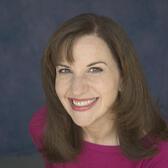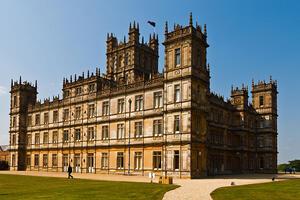Why this Modern Jewish Mother Loves “Downton Abbey”
I'm not your old-fashioned Jewish Mother, who shovels guilt on my kids in whose lives I'm over-invested. I like to think of myself as a modern version, a mom who is Jewish and opinionated, but who has her own life and interests even as she cannot resist reminding her teenage sons that breakfast is still an important meal and it wouldn't kill them to eat a piece of fruit occasionally.
I am a strong, independent woman, and I rarely get caught up in television fads (otherwise intelligent friends have tried in vain to get me hooked on "Say Yes To The Dress," "Storage Wars," and "Dance Moms," among others). But from the very beginning, I became completely absorbed in the PBS blockbuster “Downton Abbey,” which just concluded its third season.
At first glance, this makes no sense. First of all, since an openly Jewish woman in that era couldn't have even gotten hired as a kitchen maid, you'd think I would be completely uninterested in a gauzy look at English aristocracy. Plus, as an opinionated liberal, I should be turned off by the romantic, and largely false, view of servants who revered their employers and who weren't allowed lives of their own (other than Anna and Mr. Bates, but he had to go to prison to make their story worth following). Not to mention the occasional ridiculous story lines (see Mr. Bates, prison, above), soap opera silliness (Edith being jilted at the altar, Bates mysteriously whispering "her ladyship's soap" to stop O'Brien's plot against Thomas), and ludicrous leaps of faith (mild-mannered Bates pulling a switchblade on his evil cellmate, leading to his release moments later, plus the mysterious way his limp disappeared in prison).
However, in the grand tradition of shows like “Upstairs, Downstairs,” “Downton Abbey” is a study in contrasts, and not just the contrast between upstairs and down. Mixed in with the histrionics are moments of genuine subtlety and grace (the view of Maggie Smith's back as she straightens her spine before going to see the family after Sybil's death), and the big dramatic scenes (World War I, the flu epidemic) are balanced by wonderful connections between characters. Carson was sweet holding baby Sybil, and Mrs. Hughes is a delight whether she's tempering Carson's rigid traditionalism or laughing with Mrs. Pattmore. Plus, we can always count on the Dowager Countess to sink her teeth into a few great lines any Jewish mother would be proud to utter. (And one couldn’t help but wonder if Cora’s mother, played all too briefly by Shirley MacLaine, wasn’t Jewish, despite the series creator Julian Fellowes’ insistence to the contrary. I was sad to see her disposed of so quickly, but I was bothered by the way Fellowes made her a caricature of a coarse, nouveau riche American, complete with lousy table manners. But I digress . . . )
Being a modern Jewish mother is also a case of seemingly incompatible contrasts, so it makes sense that at least in my case, I love “Downton Abbey” because of its inconsistencies, not in spite of them. So here's my version of the theme music, in an attempt to explain myself to my loved ones (particularly my husband) who don't share my appreciation of the show:








Loved this honest article and the singing was over the top!